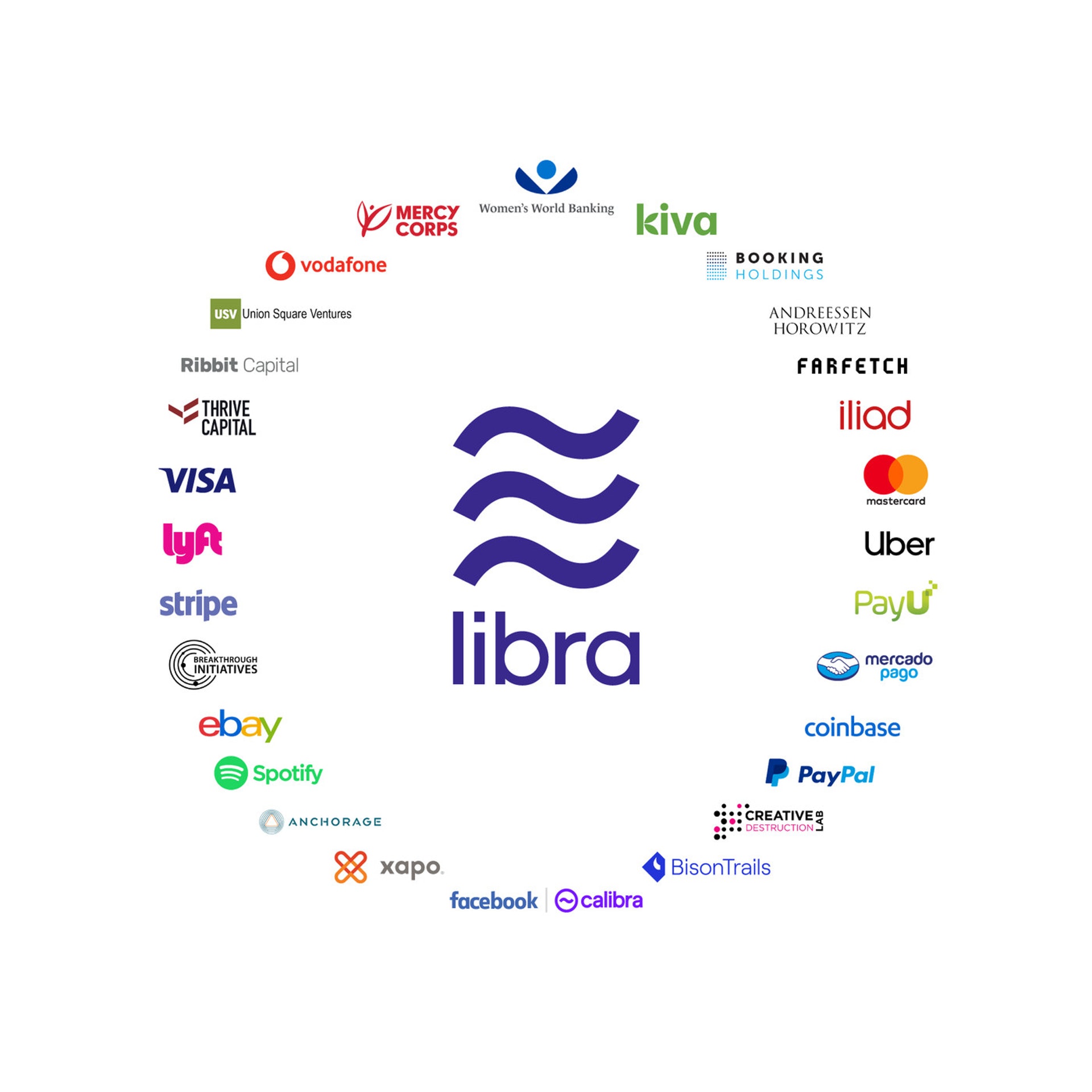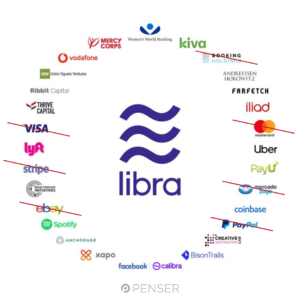
UPDATE: Six more investors: eBay, Stripe, MasterCard, Mercado Pago, Visa and Booking Holdings have announced that they are withdrawing from The Libra Association following PayPal’s footsteps. (14th October, 2019)
Facebook released the white paper for its ambitious new stablecoin, Libra, earlier this year. Libra boasts an impressive list of 28 investors ranging from multinational companies such as Spotify, Vodafone, Visa, MasterCard, Uber, Coinbase as well as venture capital firms such as Andreessen Horowitz, Thrive Capital, and more. Libra is slated for a 2020 release across the world, allowing nearly 1.7 billion people without bank accounts to transact with a smartphone.
However, it hasn’t been the smooth sailing that Facebook and the Libra Association hoped for. Within a few hours of the white paper’s release, Democratic Rep. Maxine Waters, the chair of the US House Financial Services Committee requested that Facebook pause on the Libra development citing Facebook’s “troubled past” as a reason, along with allowing time for regulators and lawmakers to examine the offering better.

A few days ago, PayPal announced that it was withdrawing from the Libra project.
Unfortunately for Libra, it doesn’t seem like PayPal is the only company that is reconsidering their involvement. According to a Wall Street Report, Visa, Stripe, and MasterCard are also wavering in their support for Facebook’s cryptocurrency endeavour.
From the outset, in the US, Libra has faced immense backlash and criticism from lawmakers and regulators alike, who have cited antitrust and competition issues, money laundering and terrorism financing, as well as consumer protection as concerns that Facebook will have to address before launching. Other than the US government’s intense scrutiny, Libra is also facing a tough time in Europe. French Finance Minister Bruno Le Maire stated that France would block Libra’s development in Europe as it poses a threat to the “sovereignty of governments.” The European Union is set to propose a new law to cover crypto-asset projects like Libra, saying they posed a risk to the wider financial system.
In the UK, the Bank of England has developed rules of engagement for Libra, outlining principles such as providing information so that regulators can monitor payments as well as requirements for the payment chain to show its operational and financial resilience. Libra will have to meet the same high standards as traditional payments before it can launch in the UK.
The Penser Perspective
A major reason for so many regulators and governments’ growing criticism about Facebook’s Libra is because it holds the potential to be bigger than other cryptocurrencies and disrupt established financial systems across the globe. Libra is backed by some of the biggest companies in the world, but even without them, Facebook owns WhatsApp and Instagram, giving them access to a significant percentage of the world’s population. Facebook hopes for Libra to be a stablecoin, backed by global currencies. This means that Facebook will be able to integrate Libra without any issues to the billions of users on these three apps. In fact, as WIRED reports, 15 of the 27 companies forming the Libra Association are directly or indirectly linked to Facebook. Backed by these multinational companies and through merchant incentives etc., Libra has the potential to become the primary way people transact, and the fear of being unable to control this financial system is a grave cause for concern.
Unregulated, Libra poses multiple security risks, especially since Facebook has had a concerning history with user data. It’s no wonder that governments, regulators, institutions and the layman are all apprehensive of Facebook’s attempt to introduce its cryptocurrency. Penser will continue to track the important updates on Libra, please check back to know more about the cryptocurrency project.
As experts in the fintech and payments sectors, we offer digital transformation, due diligence, and strategic planning services.
